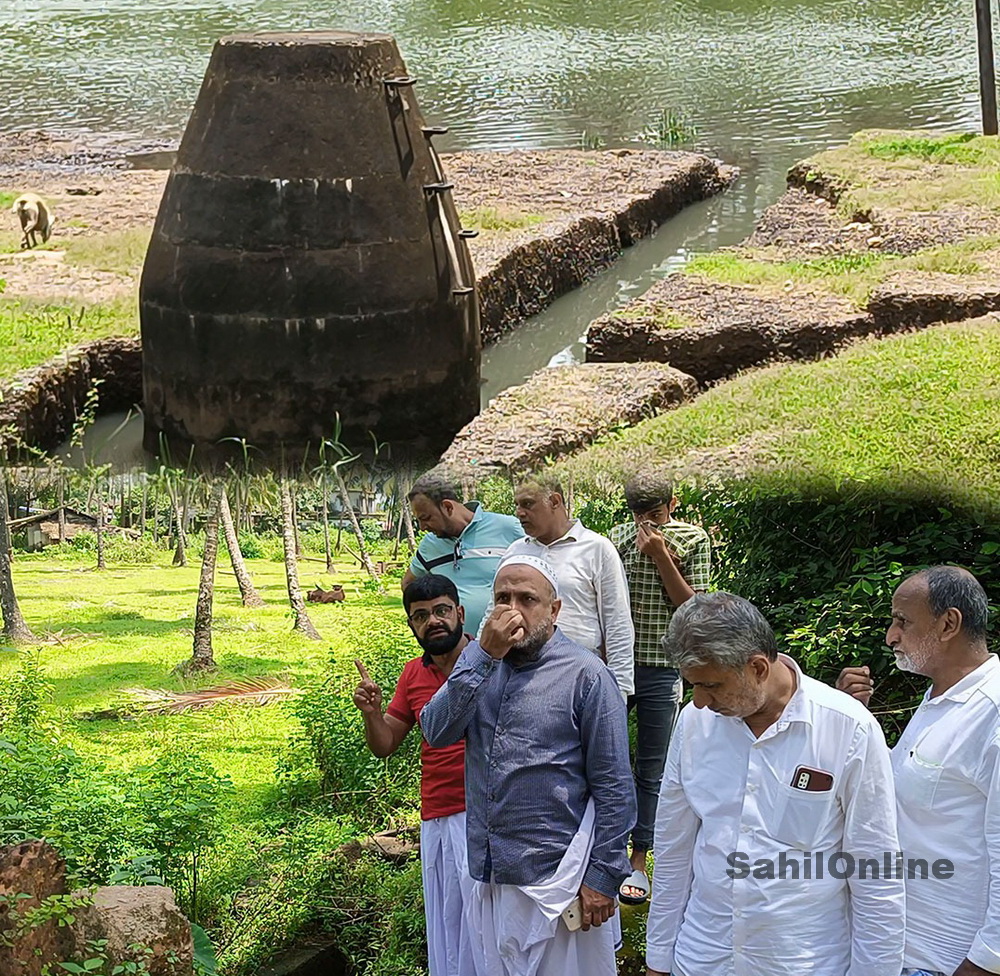
Bhatkal: The issue of wastewater discharge from the Ghausia Street sewage pumping station has once again ignited public outrage in Bhatkal, as sewage water was released into the Sarabi River. The recurrence of this problem has stirred significant debate among the public, prompting the Sarabi River Horata Samithi (SRH) to consider approaching the National Green Tribunal (NGT), a specialized body handling environmental disputes.
The SRH believes that the NGT's expertise in environmental matters could lead to effective resolutions, especially since the Sarabi River has essentially turned into a sewer due to the continuous discharge of drainage water. The tribunal's focused jurisdiction on environmental issues is expected to deliver swift justice and ease the burden on higher courts.
This is not the first time the Sarabi River has suffered due to such actions. The contamination has rendered hundreds of wells unusable, causing a severe drinking water crisis. Additionally, the foul smell pervades the area, creating an unhealthy environment for residents. The stagnation of water in drainage channels has also led to a rise in mosquito breeding, further endangering public health.
Local residents have once again expressed their frustration with the Town Municipal Council (TMC) and local leaders over the situation. They allege that technical faults at the sewage pumping station frequently result in the deliberate discharge of sewage into the river, particularly when the motors fail. Despite repeated pleas to address the issue, there has been little response from the relevant authorities, elected officials, or government departments.
Technical Challenges at the Pumping Station:
A technician reviewing the pumping station reported that the facility is equipped with two 50HP motors and two 40HP motors. Due to the 100HP capacity of the installed transformer, only one 50HP and one 40HP motor can operate simultaneously. Attempting to run a third motor causes the transformer to trip, preventing the full 100HP capacity from being utilized.
The expert noted that the volume of wastewater at the station is too large to be managed by just two motors. If the third motor were to be used, a new transformer would need to be installed, requiring municipal approval. However, neither the municipal authorities nor the local councillors have taken action. During the rainy season, the situation worsens as rainwater, combined with sewage, overwhelms the system, forcing the unauthorized discharge of wastewater into the Sarabi River.
Local Residents' Concerns:
Residents claim that workers at the pumping station frequently shut down the motors during breaks, allowing sewage to be released into the river despite the requirement for continuous operation. They accuse the workers of shutting down the motors to save on diesel costs, allegedly pocketing the savings.
Water Billing Issues:
After the complete failure of the Ghausia Street pumping station, which contaminated hundreds of wells, the municipality began providing clean water through taps, initially free of charge. However, for the past two years, residents have been receiving water bills, with threats of disconnection if unpaid. Residents question why they are being charged for water after being deprived of clean drinking water due to the sewage crisis, especially when the TMC is largely composed of councillors elected with Tanzeem's support.
When contacted by SahilOnline, Qaiser Mohtsham, a concerned councillor and chairman of the municipal standing committee, stated, "During my first term, I made efforts to ensure free municipal water for all affected areas. However, after the municipal body was dissolved, the Assistant Commissioner mandated water billing for all users. As councillors, we are not responsible for these charges. With the new body now in place, supported by Tanzeem, we will strive to provide free tap water to all households in the affected areas."


